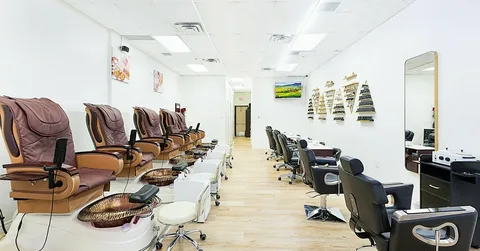How Commercial CCTV Systems Drive Security, Efficiency and Confidence in Business Spaces

A Strategic Investment in Business Protection and Performance
Today’s businesses face challenges that extend beyond physical theft. Employee misconduct, compliance violations, and unauthorized access can disrupt operations and damage reputation. Commercial CCTV systems provide a proactive approach to managing these risks. By deploying modern security cameras, businesses of all sizes gain a competitive edge in both security and efficiency.
Eliminating Blind Spots With Strategic Camera Placement
A well-planned CCTV system ensures that every inch of a business space is monitored. Security cameras should cover key areas like main entrances, parking lots, stockrooms, server areas, and customer interaction zones. Commercial CCTV systems leave no blind spots, making it nearly impossible for incidents to go unnoticed. Every action is documented, enhancing safety and traceability.
Deterring Criminal Behavior Before It Occurs
Criminals are far less likely to target businesses that clearly use surveillance equipment. Security cameras act as a visual deterrent, discouraging opportunistic acts such as vandalism or shoplifting. Even internal threats are reduced when employees know their actions are being recorded. A business protected by a commercial CCTV system becomes a less attractive target.
Supporting Incident Investigation and Dispute Resolution
When conflicts arise—whether between staff members, with vendors, or involving customers—recorded footage offers clear, unbiased documentation of what occurred. This helps avoid he-said-she-said arguments and supports fair outcomes. Many disputes can be resolved faster and with less tension when visual evidence is readily available.
Enhancing Daily Operations Through Surveillance Review
Security cameras also double as productivity tools. By reviewing footage, businesses can identify inefficiencies, customer behavior patterns, and even potential health and safety violations. Commercial CCTV systems provide a continuous feedback loop, allowing businesses to spot trends and make informed adjustments to workflows, layout, or training.
Securing Access to Sensitive or High-Value Areas
Certain areas within a facility require added security—this includes cash-handling locations, IT rooms, and confidential records storage. Security cameras monitor access to these zones, ensuring only authorized personnel are present. In case of a breach or loss, businesses can review footage to trace exactly what happened and when.
Integrating With Smart Alerts and Analytics Technology
Modern commercial CCTV systems include features like object tracking, line crossing detection, and real-time notifications. These systems can detect suspicious movement, monitor crowd density, and trigger alerts when rules are violated. This proactive monitoring helps mitigate risk and allows for immediate response before issues worsen.
Reducing Insurance Premiums and Increasing Policy Approvals
Businesses with comprehensive surveillance are often considered lower risk by insurance companies. Installing commercial CCTV systems can lead to premium discounts and faster claims approval. When incidents are backed by recorded footage, businesses can more easily validate their insurance requests, reducing delays and ensuring fair compensation.
Ensuring Regulatory Compliance Across Business Operations
Many industries require businesses to maintain visual logs of certain activities to meet compliance standards. Commercial CCTV systems make this process easier. Whether it’s tracking access logs, confirming employee adherence to safety rules, or capturing time-stamped evidence of transactions, security cameras help businesses stay audit-ready and compliant.
Empowering Management Through Remote Access and Oversight
The ability to access security footage remotely means managers can supervise multiple sites without being physically present. Remote access allows for instant checking of site conditions, real-time responses to emergencies, and continuous management oversight. This functionality is especially valuable for businesses with distributed operations or decentralized teams.
Conclusion
Commercial CCTV systems are no longer optional—they are a core component of modern business infrastructure. They offer security, accountability, compliance support, and operational insights that fuel growth and stability. Whether in retail, manufacturing, corporate offices, or service sectors, businesses that embrace surveillance are better equipped to navigate challenges, protect resources, and build trust. As technology continues to advance, the role of commercial CCTV systems will only grow more central to long-term business success.






